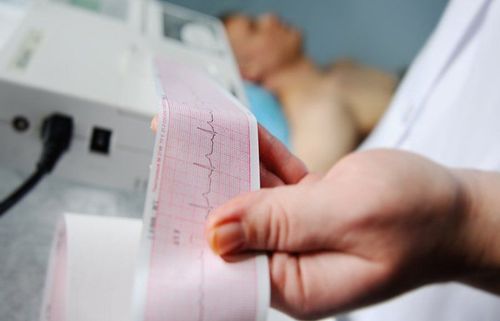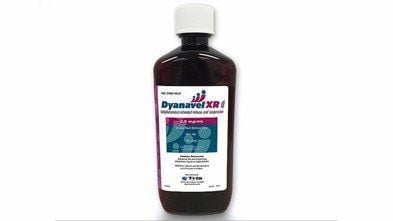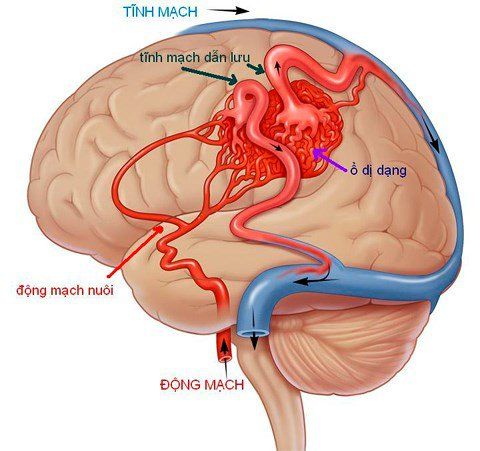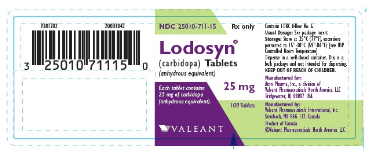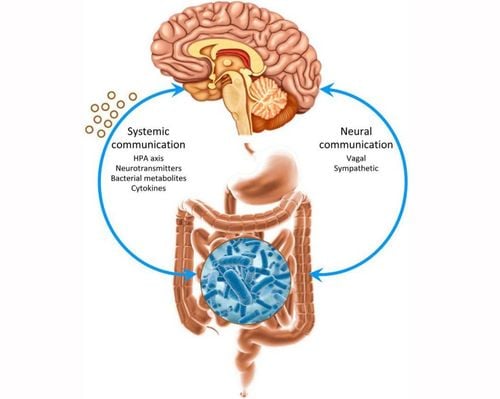This is an automatically translated article.
This article is expertly consulted by Master, Doctor Bui Ngoc Phuong Hoa - General Internal Medicine - Department of Medical Examination & Internal Medicine - Vinmec Danang International General Hospital.EEG is a very useful test to accurately diagnose epilepsy. Even so, a normal EEG result does not guarantee that the patient does not have epilepsy. Patients can record EEG while sleeping or when tired.
1. What is a sleep EEG?
In a normal person, the brain sends out electrical signals from brain cells and nerve cells to help transmit information to each other. These electrical signals can be detected and recorded by an electroencephalogram (EEG).The patient can have an EEG if there are seizure symptoms.
This method is completely painless and harmless because the EEG machine only records electrical signals from the patient's brain and does not carry any current into their brain or body.
EEG recording during sleep is actually one of the common EEG activation tests, however, it is of great significance for some types of epilepsy that appear only during sleep, such as primary seizures in children...
2. Indications and contraindications for EEG recording during sleep

3. EEG procedure during sleep
To measure EEG for the patient, the technician will stick a number of small electrodes on the patient's scalp, the electrodes will be connected to the EEG machine through wires. The machine will perform the task of detecting and amplifying the electrical signals recorded on a piece of paper.The electrodes after measuring will be removed, the EEG measurement process lasts about 30 minutes, when the patient is asleep. During the measurement, the patient will be asked to sit on a chair or lie on a bench. It can be combined with routine EEG to detect more abnormalities when doing some tests such as deep breathing, light stimulation.
4. Meaning of EEG results

A normal EEG will show typical electrical activity from the brain. However, with many types of epilepsy, the patient has abnormal electrical activity only during the seizure, and if the EEG is measured in the absence of a seizure, the EEG is normal. Therefore, it is necessary to do some more tests.
Cases of abnormal EEG results will show abnormalities of brain electrical activity. Many people with epilepsy have an abnormal EEG all the time, not just during a seizure.
However, there are also cases where a small number of patients never have a seizure and do not show abnormalities on the EEG and those without epilepsy still have abnormalities of electrical activity in the brain. . Therefore, if the patient has symptoms that are thought to be seizures and an abnormal EEG result, the diagnosis is likely to be epilepsy. However, an abnormal result does not necessarily mean that the patient has epilepsy, and a normal result does not rule out epilepsy.
At Vinmec International General Hospital is using sleep electroencephalogram recording technique in diagnosing epilepsy. This technique is performed by a team of Vinmec doctors and nurses who are well-trained, professional and experienced; with the support of modern and advanced equipment; professional medical service quality.
Master. Doctor Bui Ngoc Phuong Hoa has more than 24 years of experience in the field of neuropsychology. Doctor Hoa was formerly Deputy Head of the Department of Neurology - Quang Ngai Provincial General Hospital and participated in many continuous training courses on Epilepsy, Cerebrovascular Accident, Alzheimer's, Movement Disorders, Geriatrics. Endocrine Pathology.
Please dial HOTLINE for more information or register for an appointment HERE. Download MyVinmec app to make appointments faster and to manage your bookings easily.





